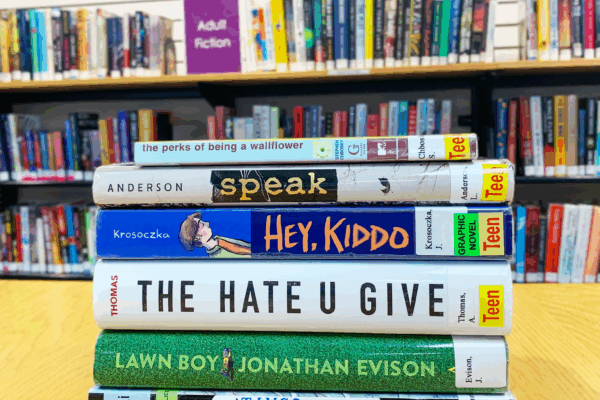Des Moines, Iowa — Every year, the ACLU marks Banned Books Week, an annual event that celebrates the freedom to read and calls attention to attempts to censor books in our state.
But this Banned Books Week, it's especially important to highlight the importance of keeping books—and therefore ideas and knowledge—widely available. In recent years, there have been a number of high-profile challenged and banned book cases in Iowa and nationwide.
Nationally, the American Library Association reported that in 2021, the last full calendar year, there was an unprecedented number of attempts to ban books. ALA’s Office for Intellectual Freedom tracked 729 challenges to library, school, and university materials and services for that year, resulting in more than 1,597 individual book challenges or removals. Most targeted books were by or about Black or LGBTQ people.
Iowa also is seeing a number of public attempts to ban books and block educators from providing young people with reading materials that have already been vetted by librarians and teachers.
- At the Vinton Public Library this year, two directors resigned because of efforts to purge LGBTQ books. Our statement on that situation can be found here.
- In Logan, Iowa, recently a local author's book about her family was challenged.
- Some Iowa politicians want to dramatically expand Iowa's obscenity laws and charge librarians and teachers with felony charges simply for doing their jobs and giving kids books those politicians don't like.
- A roundup of some other recent attempts in central Iowa to ban books can be found here.
Mark Stringer, ACLU of Iowa Executive Director, said, "It's disturbing that, across our state, we are seeing individuals or groups trying to shut down access to certain books and ideas. They are trying to get them banned from public schools and community libraries because they don't want other people to read them. Our country was founded on the ideal of free and open access to ideas and knowledge. Government institutions, like public schools and public community libraries, have a legal obligation under the First Amendment to not censor materials simply because some community members don't agree with the viewpoints in those materials. Free societies read freely."
"A person can decide that they don't want to read a certain book. They can decide that they don't want their child to read that book. But they can't decide that the entire school or the entire town can't read that book," Stringer said.
Stay Informed
Sign up to be the first to hear about how to take action.
By completing this form, I agree to receive occasional emails per the terms of the ACLU’s privacy statement.
By completing this form, I agree to receive occasional emails per the terms of the ACLU’s privacy statement.

